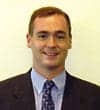Discussing the implications for the future of children with hearing loss.

Deafness and hearing loss have long been recognized as a serious disability. History tells us that the deaf have been variously isolated, ridiculed, treated, or mistreated due to the assumption that because they could not hear, they were dumb—unable to speak—or dumb—unable to think. Today, we know that people who are deaf or hard of hearing can, in fact, think, can be helped to hear, and, as a result, can learn to speak.
The Nature of Learning
Research regarding the nature of learning makes it clear that crucial input and processing occur within the first years of life. In the first 3 years, for those with normal hearing, sounds of the environment and voices of family and self begin a vital process leading to the development of speech and language.
Current technology has made available sophisticated devices, digital hearing aids, and cochlear implants that can deliver auditory information to infants and toddlers, beginning the process of developing awareness and meaning from what is heard. However, unlike clear vision, which can be provided to the eyes by corrective lenses, sound delivered to the ears by hearing aids and implants is not clearly perceived, and children must be trained in its use. Just as effective methods can teach youngsters to see and identify letters, decode words, and read sentences, specific methods can be used to teach deaf children how to listen, identify sounds and words, and understand the language they hear and speak and will later read and write.
Based on this knowledge, parents and professionals lobbied for earlier identification and intervention for children with hearing loss. Because of their efforts, Universal Newborn Hearing Screening is federally mandated and is on the way to universal implementation. The screening process is delivering the diagnosis of hearing loss to 30,000 stunned families yearly. As we look toward the early learning window, we must investigate the potential impact that early diagnosis of deafness may have on families, schools, and the professional community.
Parents struggle with what deafness means for their baby and their family. Those historical assumptions come into play as they cope with the idea of what deafness may mean: no sound; limited or unnatural speech; restrictions in thinking or academic learning; alternative communication. Expectations become altered or are absent, and behaviors, attitudes, and interactions with their babies are modified.
Early identification has the potential to allow parents to provide their children with early amplification, intervention, and education that can deliver to their young children a strong foundation for learning. As the primary teachers of their children, parents can receive the support and knowledge they will need immediately as well as for the future growth of their deaf children.
Implantable Devices
Cochlear implantation can deliver sound electronically to the inner ear, but this surgical procedure is not recommended for infants before the age of 12 months. However, hearing aids and therapies designed to stimulate audition and speech development can be provided as early as a few weeks of age. If they can receive even partial information, babies can learn to turn to the sounds of toys and parents’ voices, respond to the environment, and get entertainment and feedback from their own babbling and vocal play. If needed, after 12 months of age, a child who is deaf may receive a cochlear implant and more auditory information can become available. Later, sound field and personal listening systems can increase input to hearing devices inside and outside of classrooms.
Procedures following newborn screening recommend that parents return for further testing to verify or contradict initial results. Some families, devastated by the news, may be unable or unwilling to take action in a timely manner. Others may choose to adjust to the idea that their child will hear no sound. Some may wish to wait to see what will happen, and will forgo further testing, the use of a hearing device, or intervention.
This is the prerogative of families who have made a conscious choice for their children and/or their lifestyle. However, at Oralingua we are often visited by mothers and fathers who were unaware that choices were available, that early intervention, amplification, and education were an option, and now wish for their older children to learn to speak and listen. It is difficult to see (and hear) children who are fitted with hearing aids or even cochlear implants, or who have moderate or severe losses, but have not been taught how to use the information these devices offer.
It is unfortunate that parents often make treatment and educational decisions based on limited information. Professionals have an obligation to present the choices available by providing information regarding the full spectrum of educational, medical, and communicative possibilities even when these options seem unattainable, unlikely, or in opposition to their own philosophy.
An Early Window Advantage
When the early learning window is past, education in audition, speech, language, interaction, and even behavior becomes not developmental, but remedial. Remedial learning, although more intensive and time-consuming, can certainly be effective for many, but is neither preferable nor necessary.
With specific therapies and early intervention utilizing amplification made possible by newborn screening, many children with hearing loss of all degrees can learn to speak in natural voices, identify sounds and sentences, and communicate using appropriate speech.
Therapies designed to give meaning to that sound delivered as early as possible can offer a world of information and skills to children. Universal Newborn Hearing Screening has opened a window for learning to understand and perceive sound and spoken language.
The advantage of newborn screening is lost if parents and professionals do not understand the reality that appropriately amplified sound and skillful therapies can be provided to babies and young children. Early identification is advantageous only if action is taken to respond to the information with a thoughtful and informed decision.
In 2005, children identified through newborn screening can be taught to listen, to speak, to interact appropriately, and to use these skills as effective tools for further learning.
Linda Hyde is program director, speech therapist, Oralingua School for the Hearing Impaired, Whittier, Calif.




